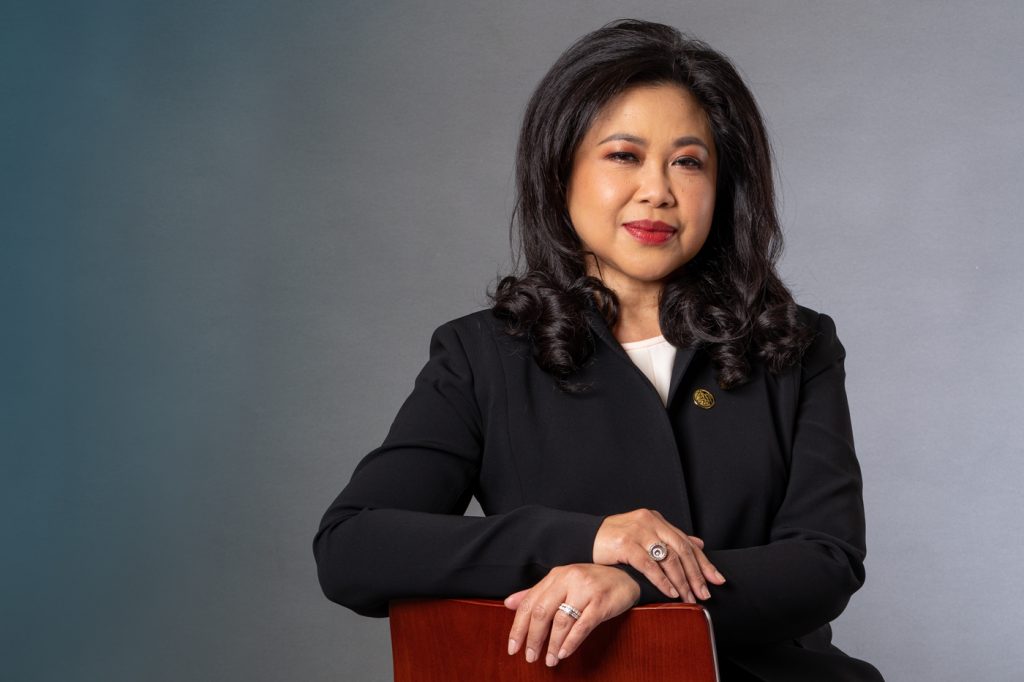
We’re delighted to catch up with Chartered Banker, Datuk Nora A Manaf, Group Chief Human Capital Officer at Malayan Banking Berhad and member of the Board of Examiners at the Asian Institute of Chartered Bankers. With 25 years of talent management experience and recognition as a Global Top 50 Human Resource Professional, her insights into the science of building people is a steer for Chartered Bankers to embody the gold standard of the profession.
Q: The unprecedented scale of the pandemic marks an opportunity for banks to rebuild their reputations and redeem public trust. Inclusive and responsible banking, a hallmark of every Chartered Banker, must come to the fore. How do you suggest bankers help steer public opinion in the right direction?
In essence, bankers need to take a leadership role and utilise their banking services, products, and relationships to support and accelerate the fundamental changes necessary to achieve shared prosperity for all stakeholders. These economically dire times are also when banking institutions can demonstrate placing community needs upfront, e.g. through reliefs such as moratoriums, targeted loans, or other aids such as donations.
Crisis aside, change has always been afoot though, with consumption patterns and business culture disrupted by millennials and Gen Z, rapid digitalisation, and economies striving to go greener. With that, banks and individual bankers too need to outline and uphold their role and responsibilities in shaping a sustainable future through acts such as inclusive, customer-centric services, and responsible lending and investing.
At the root of it, as the saying goes, “You can’t build strong buildings without strong foundations”. Similarly, bankers must be impeccable in their professional conduct, with a deeply ingrained culture of integrity, underpinning the tenets of responsible banking in order to uphold public trust. A crisis such as the pandemic only serves to heighten this aspect even more, with the public facing economic disruptions and an uncertain future.
In the long term, through their support of society, customers, and communities by facilitating the changes required for sustainable and socially purposeful finance, banks and bankers are then able to continuously put up the building blocks for public trust, supported by governance and transparency. Providing service solutions and products that align with environmental, social and governance (ESG) criteria is critical moving forward, for this generation and the next.
Q: A financial steward is one who has the dedication and discipline to protect the long-term interests of others. What is your personal ethos or philosophy in ensuring this value is retained for clients?
Most may perceive businesses, including banking, to be only about profit, but at its best, it is about expanding the possibilities of humanity, by being a responsible corporate citizen. That’s why to me, putting profits before all else, especially anything that can potentially jeopardise the livelihoods of our clients or employees, even if it benefits some stakeholders, is an absolute no-no. Doing the right thing, which includes ensuring customer rights are preserved, I believe is a discipline that is to be upheld at all times, especially as a banker.
As a humanising banker, we anticipate customers’ and society’s needs, hence the creation of products and services that cater to their needs no matter the environment. Even more so at times of crisis such as the current pandemic. For example, for us at Maybank, one of our efforts was through empowering the community to make a living via the Sama-Sama Lokal platform. Originally launched to help local hawkers who were facing difficulties amidst the Movement Control Order (MCO), the platform evolved as recovery mode kicked in to include a wider range of businesses. To further help preserve the safety of customers and the community, we also introduced Maybank EzyQ, an online appointment management system that enables customers to lessen their waiting time and prioritise personal safety.

Ultimately, preserving the long-term interests of others means our business continuity practices must be in line with ESG considerations as a whole. This reinforces the hallmark of Chartered Bankers at the helm, where giving due care and consideration to others is also an exemplary trademark. For us, among our considerations, were the ESG commitments in our investments, particularly through Maybank Asset Management, where we have invested in the Malaysian ESG Opportunity Fund, an ESG equity growth fund. Another is the first actively-managed Syariah-compliant ESG fund, the Maybank Global Sustainable Equity-I Fund, which is a global equity fund that adopts ESG factors to enhance long-term returns.
Fundamentally, an all-round approach is needed to effect long-term change; it also has to be collectively done as an industry.
Q: In your opinion, how has banking changed throughout your career in financial services?
From my observations, the main change has been that today, digital is now mainstream. Banks are now acting as technology companies that provide financial solutions – unheard of as recent as 10 years ago. With the advent of digitalisation, entire industries have undergone massive changes, including banking and now with the pandemic, this has almost revolutionised business models that were slower to respond in the past. We are already seeing alliances between financial services and technology companies, using robotics and artificial intelligence to address key pressure points, reduce costs, and mitigate risks. Non-banks are driving new business models. The industry is looking far beyond just replacing the bank teller.
Another change in the industry, is the emphasis on diversity and inclusion. Apart from strides taken in the industry in this respect, I always share with pride that at Maybank too, resulting from our continued efforts and focus to develop and retain women talents since the start of Maybank’s people transformation journey commencing 2009, we have also seen encouraging results for women representation in board and management. An example is our former chairman, Datuk Mohaiyani Shamsudin, who was the first woman chairperson of the country’s largest bank in 2017 and compared to 38% in 2009 when our people transformation journey commenced, women in management has trended upwards to 47% in 2019 as a result of the stringent monitoring, targeted, and varied interventions emplaced through the years.
Q: What strategic imperatives must banks invest in to achieve operational resilience?
More than ever, I feel that effective and dynamic organisational development is critical to support the business continuity of organisations. As a human resource practitioner, identifying pain points, anticipating the growing needs of the business – it all ties back to ensuring a workforce that is future-ready and resilient enough to face an increasingly VUCA (volatile, uncertain, complex, ambiguous) business landscape.
Lifelong learning and empowering the workforce to take charge of their own development is crucial in this respect. Additionally, adapting and being agile are mandatory, and that includes business processes. For example, having a mobile workforce is now a new normal, and for us, we had already gone through the first hurdle in the early stages, i.e. going straight to 82% work-from-home in the first week the MCO was announced, made possible due to our future-ready initiatives prior to the pandemic.
We have now levelled up further with our mobile work arrangement, where work is redefined – it is not anchored to a place or time-based, but on how we can deliver our very best for our customers, wherever we may be. Empowering the workforce, in addition to safeguarding the safety and well-being of employees, ultimately strengthens organisational resilience.